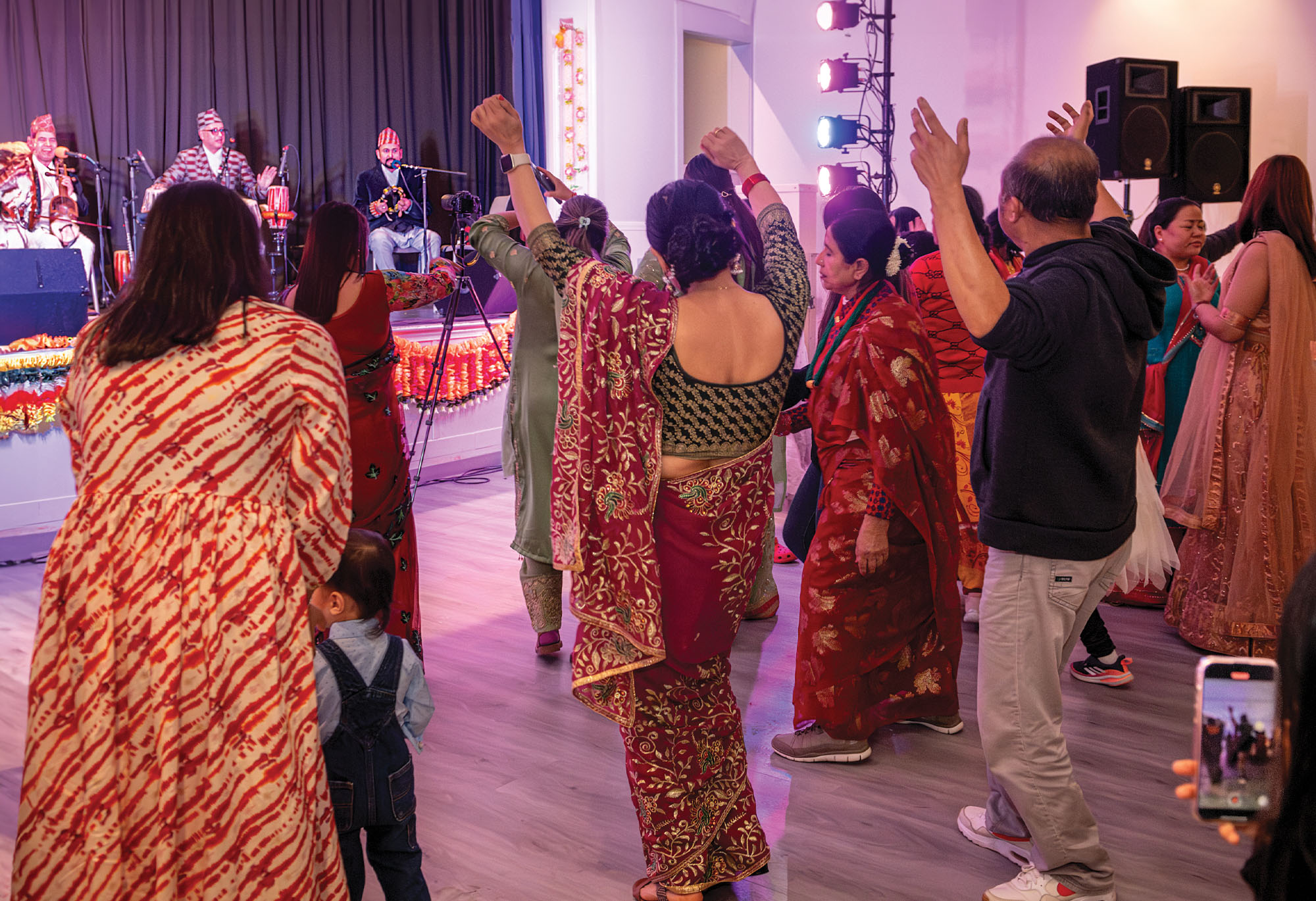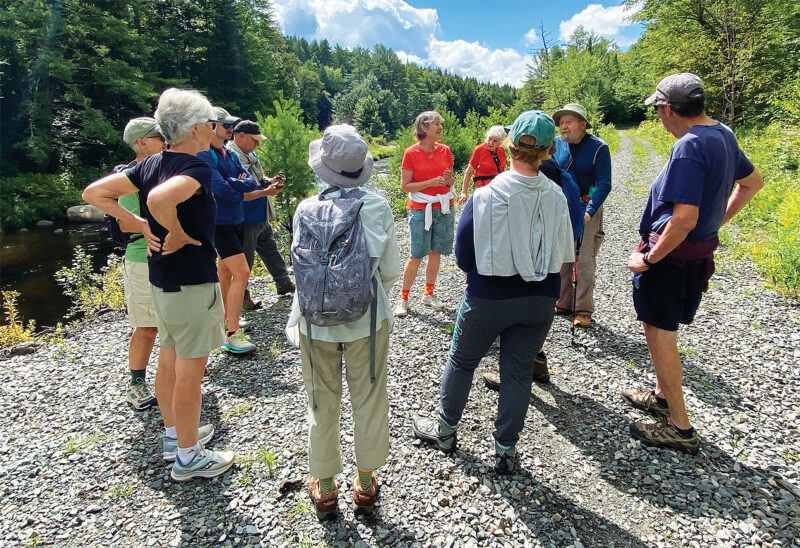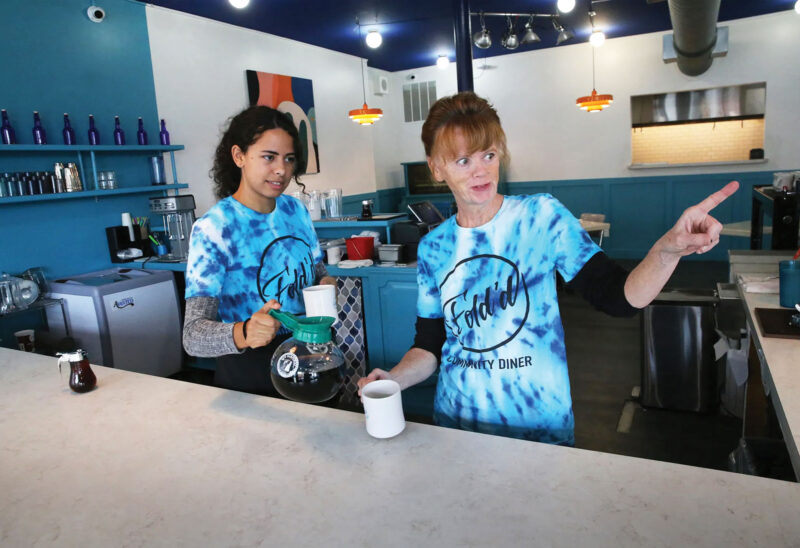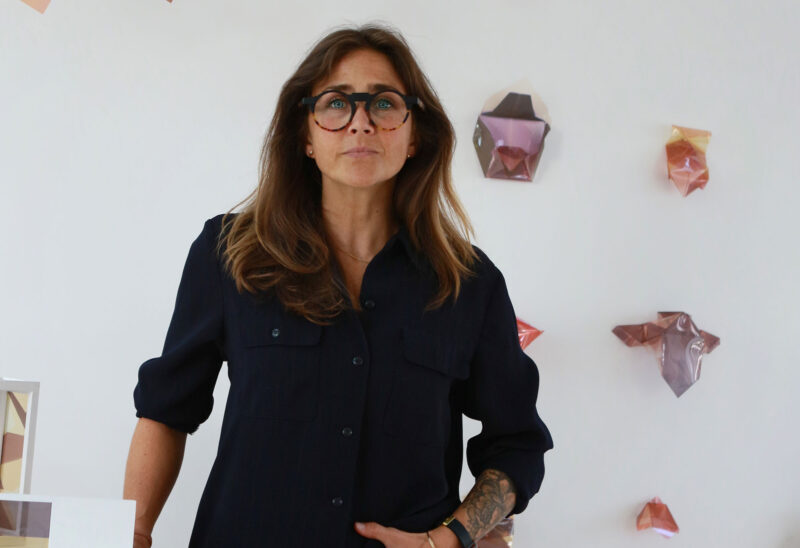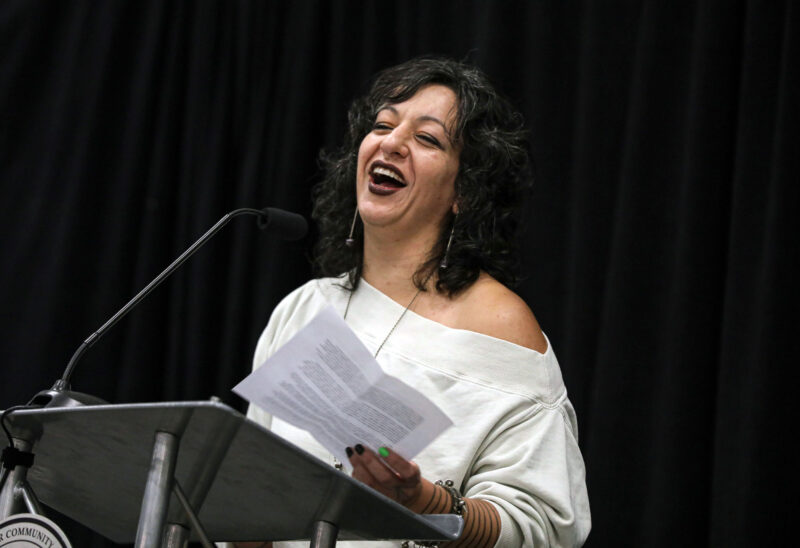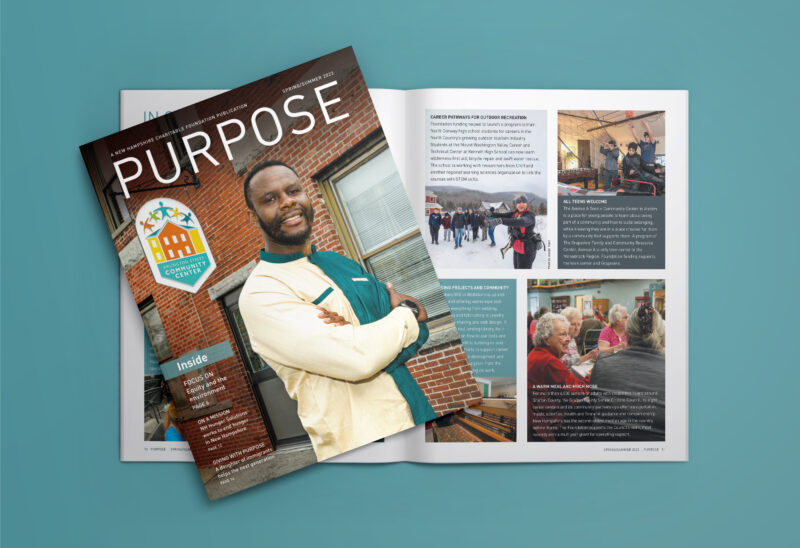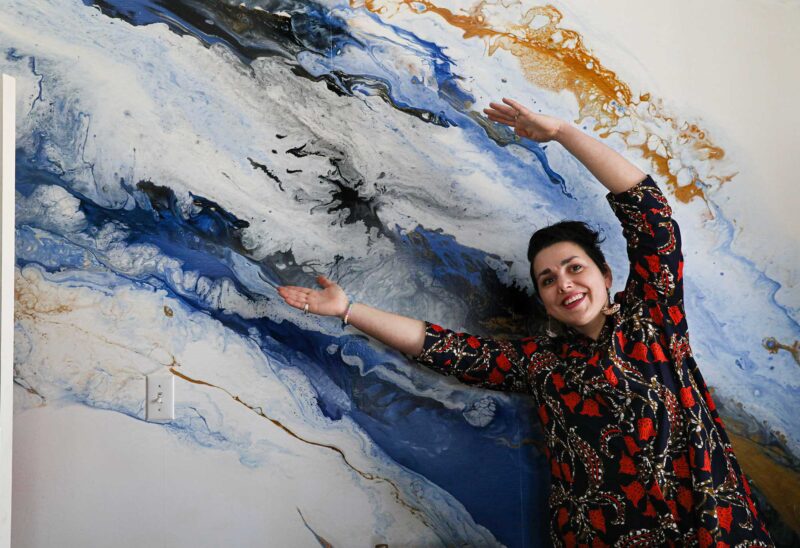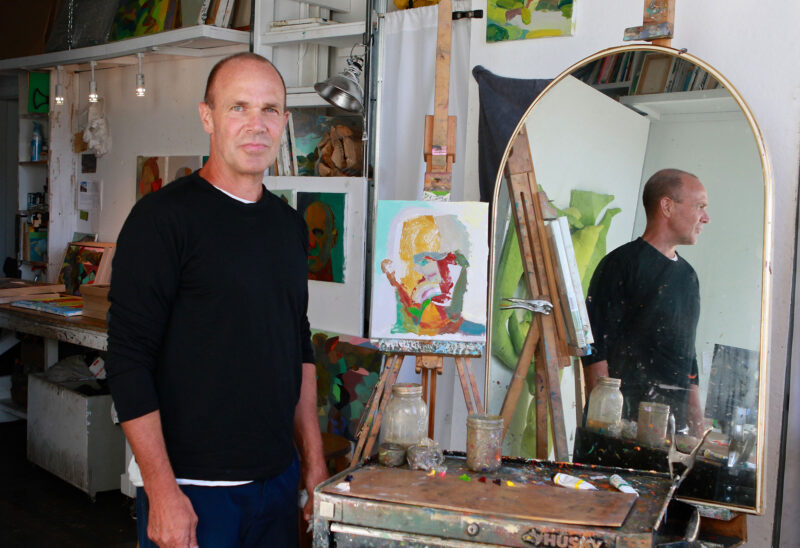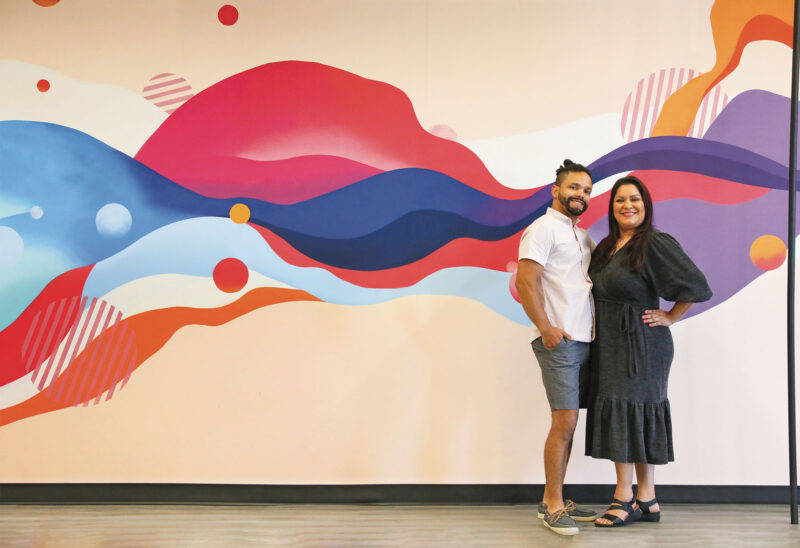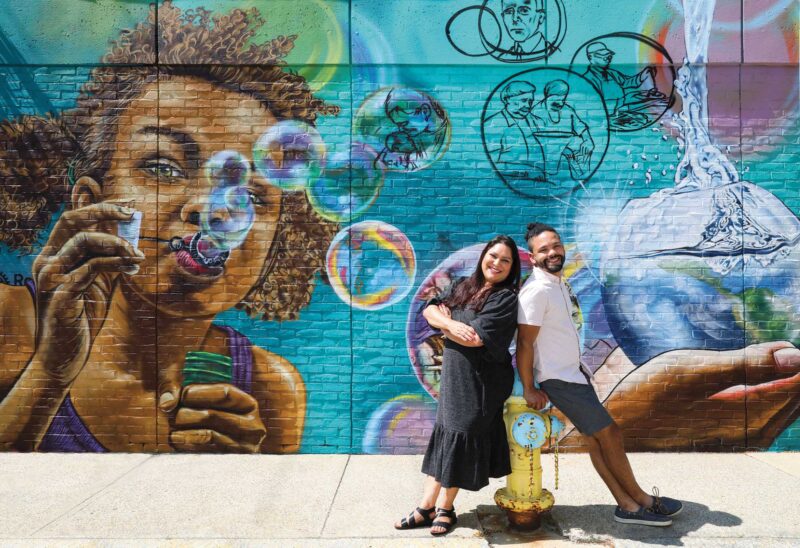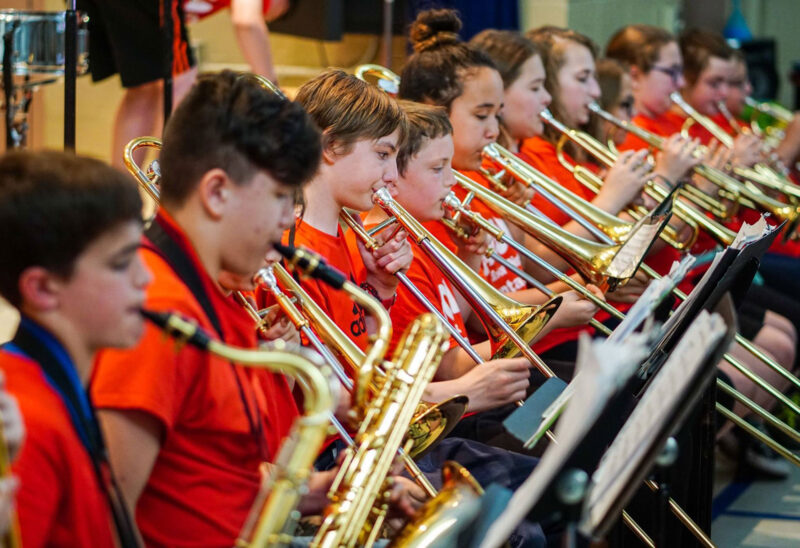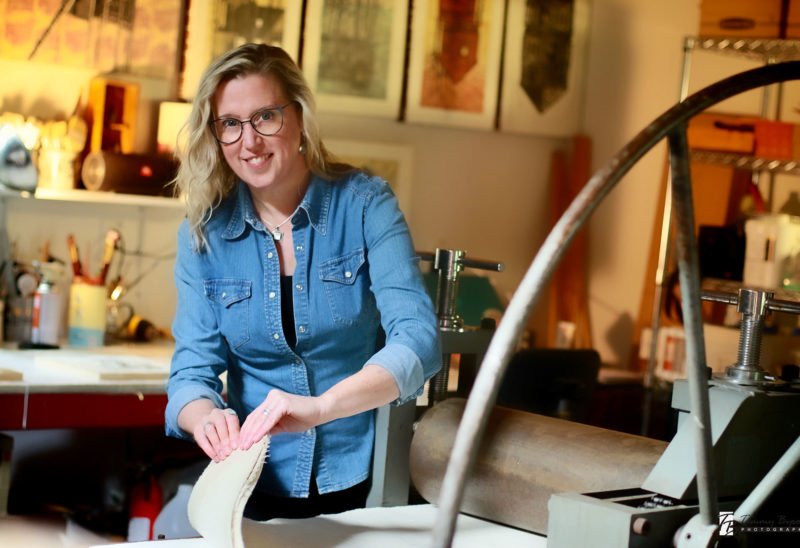An American scene on a freezing November night:
A crowd pours into the Concord City Wide Community Center. Attire ranges from fancy Nepali dress — men in Dhaka hats and matching jackets, women in shimmering skirts and sarees — to flannel and fleece. There are babies and grandmothers and everyone in-between, all here to celebrate Deepawali, the Hindu festival of lights. A priest gives a blessing, candles are lit. The band “Himalayan Dreams” takes the stage and strikes up the music of a place far away. Dancing ensues.
The gathering calls to mind American scenes from across generations: Irish-American “times,” where fiddles and banjoes filled kitchens and hearts with tunes of the Old Country; events in French-Canadian parishes and Polish American Clubs where people preserved tradition and built a deep sense of belonging in the New Country.
Deepawali (or “Diwali”) celebrates the triumph of good over evil, of light over darkness.
This free concert, inviting the Concord-area community to celebrate those things, is being put on by the Capitol Center for the Arts and the William H. Gile Concert Series.
It marks the first time in its seven decades that the Gile Concert Series has crossed the Merrimack River from downtown, migrating a scant 2.3 miles to “The Heights” neighborhood — which is among the most racially diverse in all of New Hampshire.
Ghana Sharma of Concord said that effort matters, because this community center, by virtue of its location, “is familiar to New American people. And this is one of the most important Nepali cultural festivals — to celebrate joy and happiness for everybody.”
This event is just one illustration of how the Capitol Center is making intentional shifts in the way it works.
“Instead of thinking as a ‘venue’ we are thinking as a community service organization that is focused on the arts,” said CCA Executive Director Sal Prizio — who joined the organization two years ago. “It’s an important mentality shift.”
That means continuing apace with concerts, comedy shows and more in its two downtown locations while also making deliberate efforts to reach out, build meaningful relationships and better serve the whole community.
Battered, like all arts organizations, by the pandemic, Prizio reports with relief that the CCA has just recorded its best two months in history. “We are humming right now,” he says.
Those community-building efforts include opening the CCA’s two commercial kitchens to small businesses, via a Culinary Artist in Residence program. Now, the smell of savory meat and vegetable pies draws the lunchtime crowd into the Bank of New Hampshire Stage building on weekdays, as Batulo’s Kitchen serves an array of Somali delicacies to hungry customers.
“Instead of thinking as a ‘venue’ we are thinking as a community service organization that is focused on the arts.”– Sal Prizio, executive director for the Capitol Center for the ArtsTweet This
For Smarika Darji, a first-year student at Concord High School, the CCA’s efforts meant the opportunity to build belonging and confidence in a downtown space.
Smarika, a dancer, won first place in the New Americans Got Talent Show hosted at the Bank of New Hampshire Stage. Her mother had taught her traditional Nepali dance. When Smarika finished her routine, she looked up and found her mom in the crowd, beaming. After the show, a little girl asked for her autograph. Smarika giggles, remembering: “It feels like I’m famous.”
When she walks by the Main Street venue now, she said, “I still feel good.”
For Journee LaFond, organizer of Capital City Pride, a partnership with the CCA has led to a monthly “Pride Night,” series that nurtures community. The opportunity for LGBTQ+ people and allies to gather in a welcoming and affirming space on Main Street means much more than an evening of entertainment.
“Yes, we are dancing and talking and singing together — but you can also meet someone who knows a doctor who is accepting patients, or someone who is renting an apartment,” LaFond said. A person who attended a recent event approached LaFond afterwards. “I don’t know if you understand this,” they said, “but you are saving lives by creating this space.”
Prizio emphasizes that “there is no finish line” to the work of community outreach and inclusion. Too many people have long faced barriers to experiencing the arts, and to feeling a true sense of belonging in community. Removing those barriers will take deliberate, collaborative effort.
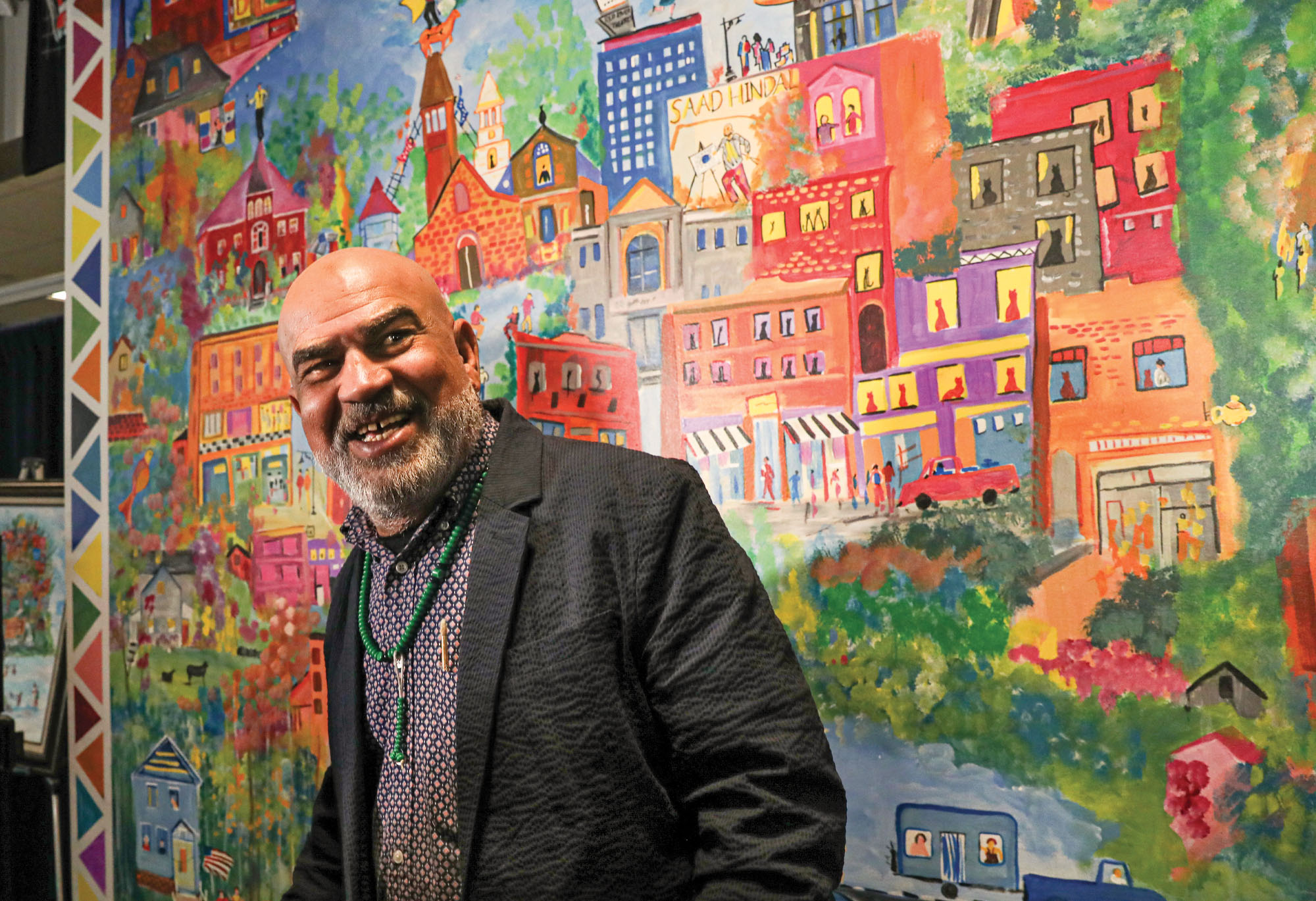
Saad Hindal unveiled a new mural of Concord at the Capitol Center for the Arts
CCA Community Outreach Coordinator Jessica Livingston heads up the work, and has created partnerships with the Concord Multicultural Festival, Change for Concord, Project S.T.O.R.Y. and more. Coming soon will be sensory-friendly shows for people with autism.
The week before the Deepawali celebration on the Heights, a new mural was unveiled in the lobby near Batulo’s Kitchen.
Painted by Concord artist Saad Hindal, who was born in Iraq, the colorful mural includes whimsical depictions of a familiar cityscape, conveying a celebration and love of place.
“This is not just a mural,” Hindal said, through an interpreter. “To me, it is my home. I love this city. I love this country.”
Atop a Concord building-in-progress depicted in Hindal’s mural is perched a yellow construction crane. “Live Free or Die” is painted across the crane — a reference, perhaps, to a New Hampshire community still under construction, but committed to building something better.

